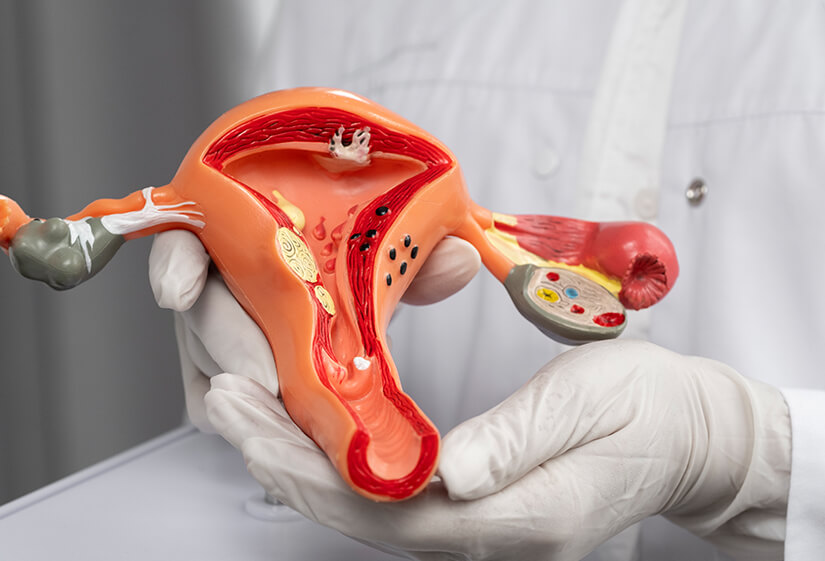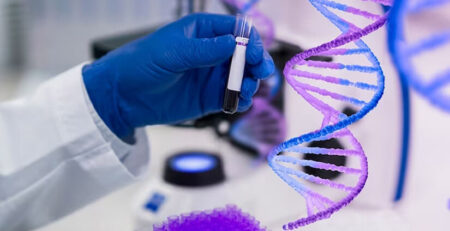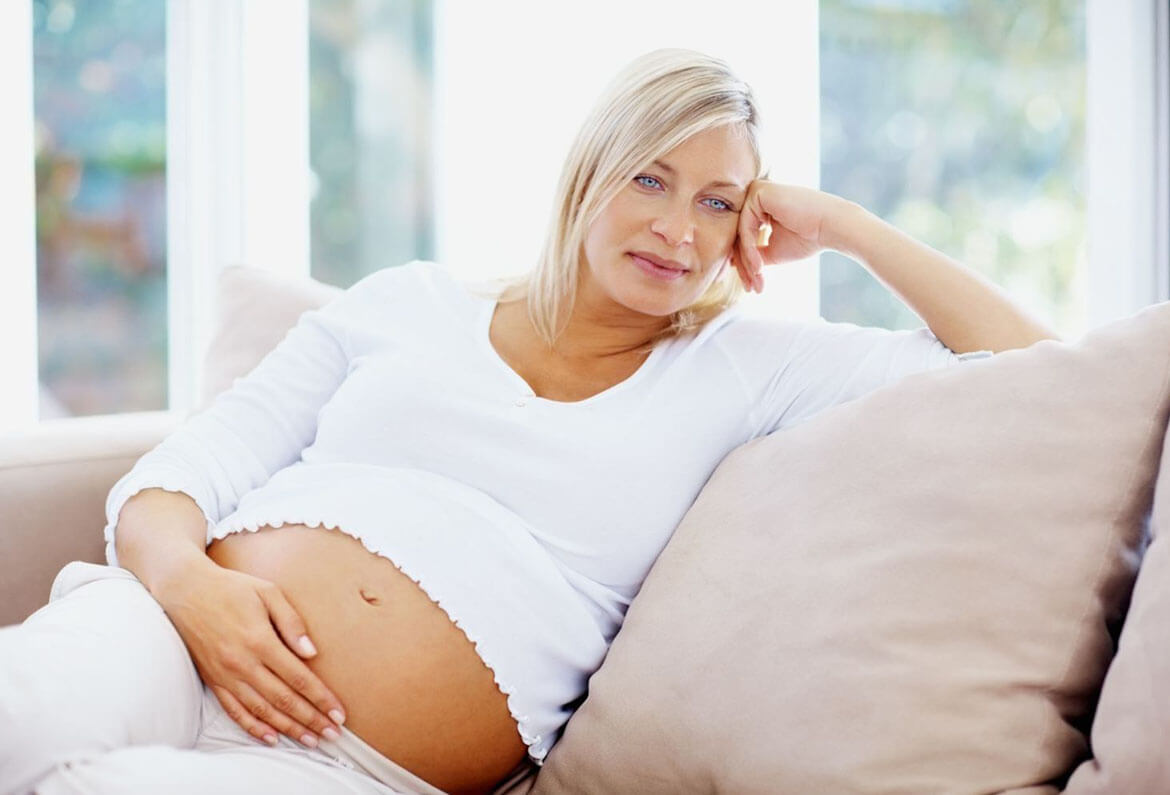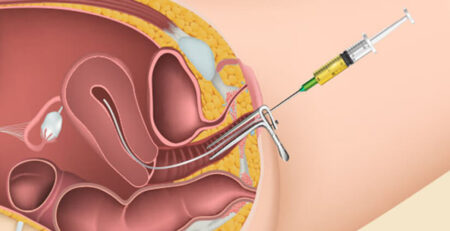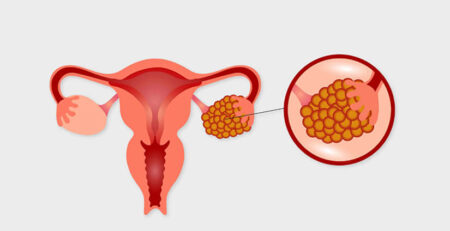6 Things to Know About Endometriosis
Are you experiencing terrible pain or excessive bleeding during your periods? Maybe you have experienced discomfort during intercourse? If so, this is the time to pay attention. These aren’t minor inconveniences; they might be symptoms of endometriosis, a chronic disease that affects up to 10% of women throughout their childbearing years.
And, here’s the interesting part: it frequently goes misdiagnosed for years because of varying signs and symptoms. But knowledge is key. Knowing the key factors can help you understand this disorder and find the most effective endometriosis treatment. Therefore, in this blog, we will discuss the six important things you should know about endometriosis so that you can handle the condition smoothly.
Let’s get started!

1. Endometriosis Exhibits Several Symptoms
Do you know that endometriosis exhibits different symptoms that vary from woman to woman? Pelvic pain, especially during your mensural cycle, is the primary symptom of endometriosis. It’s often linked to menstrual periods, but it’s not your normal period pain. Many women feel cramps during their period, but those with endometriosis often report intense pain.
Other endometriosis symptoms may include:
- Painful Periods: Along with pelvic pain, you can also feel pain in your lower back and abdomen during periods.
- Pain with Intercourse: Experiencing pain during or after sexual intercourse is a common red flag for endometriosis.
- Pain with Bowel Movements or Urination: You can feel pain with bowel movements or urination during or after your periods.
- Excessive Bleeding: You might notice unusually heavy menstrual flows or even bleeding between periods, which act as a significant endometriosis symptom.
- Infertility: In some cases, endometriosis is first discovered when investigating infertility issues.
- Other Symptoms: The symptoms of endometriosis can extend to causing fatigue, diarrhea, constipation, bloating, and nausea, particularly around your period.
These symptoms can vary from woman to woman, making it difficult to diagnose whether it is endometriosis or other fertility problems. If you experience any of the above symptoms, don’t ignore them. Consult the best fertility doctor immediately.

2- There Are Several Techniques to Detect Endometriosis
Diagnosing endometriosis symptoms is one of the effective ways to find the suitable treatment option. But how do you know if you have endometriosis symptoms? Simply diagnosis, and there are several methods to detect endometriosis. Here are some of the diagnosis techniques:
- Symptom Analysis: The first and foremost method to detect endometriosis is through symptom analysis. Visit the best IVF centre in Delhi, where the fertility doctor will analyze your symptoms for further examination. Discuss all the symptoms openly with your doctor during the consultation, and don’t hide your medical history or any other information that can pose a challenge in treatment.
- Ultrasound Examinations: Based on the examination of symptoms, your fertility doctor will perform an ultrasound, where sound waves are used to create images of the inside of your body. It helps doctors spot any cysts or unusual growths causing the problem. This ultrasound will help your doctor determine if laparoscopy is required.
- Laparoscopy: Sometimes, the only way to get clearance on endometriosis symptoms is by directly looking at the endometrial growth. In those cases, the doctor recommends laparoscopy, which is a minimally invasive surgery where a tiny camera is inserted into the pelvis, allowing doctors to see if there are any endometrial tissue growths outside of the uterus.
- Treatment-based Analysis: In some cases, when there is no clarity on whether it is endometrial growth, a treatment-based analysis is performed, where a medicine is given to abolish the period completely. The response to this treatment can sometimes help in making a diagnosis.
Remember, diagnosis is the crucial step to finding the most effective endometriosis treatment. So, be patient and trust your doctor.
3- Endometriosis Can Lead to Infertility
You might be wondering if endometriosis can cause infertility. Unfortunately, yes. Endometriosis is a serious condition where tissues similar to the uterus lining grow outside the uterus, often in the pelvic area. This unusual tissue growth impacts fertility in different ways, including:
- Egg Reserve: Egg reserve refers to the quantity and quality of eggs in a woman’s ovaries, determining her reproductive potential. Chronic inflammation and scarring due to endometriosis can disrupt the normal functioning of the ovaries and hinder egg development, leading to infertility in females. Also, endometriosis can affect blood flow to the ovaries, potentially limiting the supply of oxygen and nutrients needed for healthy egg development.
- Uterine Receptivity: The unusual uterine growth outside the uterus interferes with embryo implantation, making it difficult for the embryo to attach to the uterus lining.
- Damage Fallopian Tubes: Inflamed endometrial tissue and scarring can damage or block the reproduction organs, including the fallopian tubes and ovaries, making it difficult to reach the sperm to egg and fertilize it.
While this may seem scary, many women with endometriosis can conceive. Consult the best IVF specialist at the IVF centre in Delhi to find alternative solutions like IVF (in vitro fertilization) and ICSI to get pregnant.

4- Endometriosis Treatment Can Help You Feel Better
Good News, ladies. You don’t need to deal with endometriosis anymore because, due to medical advancement, several endometriosis treatment options are there. The best part is these treatment options are customized based on your symptoms and plan for pregnancy.
- Pain Management: If you are dealing with severe pain and not planning for pregnancy, your doctor may prescribe medications like gonadotropin-releasing hormone (GnRH) agonists to stop the menstrual cycle.
- Fertility Focus: If you are planning to conceive, then the focus shifts to ovulation induction medications. These medications are coupled with other infertility treatments to enhance effectiveness.
- IVF (In Vitro Fertilization): In severe cases where endometriosis leads to distorted tubal anatomy, direct IVF is the best endometriosis treatment option for conception. In IVF treatment, the ovaries are stimulated with hormones to produce sufficient eggs. These eggs are then retrieved and mixed with sperm for fertilization. Afterwards, the embryo is directly attached to the uterus lining. It bypasses the fallopian tubes entirely, offering hope where natural conception might be challenging.
- Surgical Treatment: If you are having severe symptoms and don’t find relief with medication and surgical treatment like laparoscopic ablation/excision can help.
- Medications: Most of the time, the growth and endometriosis symptoms may return. However, hormonal birth control or other drugs may assist in slowing this regrowth.
The endometriosis treatment plan is customized based on your future fertility plans. So, discuss your goals with your doctor clearly.
5- Laparoscopy Might Not Always Required
Laparoscopy holds a dual role: it acts as a diagnostic tool, and it also helps to relieve pain. How? Let’s see.
- Diagnosis: Laparoscopy is frequently used to diagnose endometriosis. With this minimally invasive treatment, your doctor can observe endometrial tissue that has grown outside the uterus. They can also extract tiny samples (biopsies) for further evaluation, which is an important step in further diagnosis.
- Treatment: If you are dealing with severe pain during your mensural cycle due to endometrial growth, which is not managed with other medication, then laparoscopy is the only effective endometriosis treatment Through this procedure, your doctor can remove or burn away endometrial growths.
So, is laparoscopy always required for endometriosis? The answer is no. However, it might be used as a treatment option in special cases where the medication is not enough to manage the pain.

6- Endometriosis is a Complex Condition
Endometriosis is a very complex condition. Understanding the nature of endometriosis can help you and your doctor to find an effective treatment.
- Gradual Progression: It’s not a condition that appears overnight. Endometriosis typically develops gradually. The severity or extent of the disease is often linked to the number of menstrual cycles a person has experienced.
- Impact on Menstruation: With each menstrual cycle, there’s the potential for the endometrial tissue, which is located outside the uterus, to grow a bit more. It’s similar to putting gasoline on a fire, where each cycle could worsen the situation.
- Pregnancy and Postpartum: Here is an interesting part. Sometimes, symptoms of endometriosis are suppressed with pregnancy. It’s like pressing the pause button on the condition. But this isn’t a cure. After giving birth, the symptoms can come back.
Remember, endometriosis is a complicated situation. Therefore, understanding its nature is crucial to finding the endometriosis treatment solution.
Conclusion!
Endometriosis is complex. However, understanding its symptoms, diagnosis, impact on fertility, treatment options, the role of laparoscopy, and its nature and progression can help you enjoy your pregnancy journey. Remember that you are not alone in dealing with diagnosis, treatment, or reproductive issues. Knowledge is power, and controlling endometriosis becomes a more informed experience with the correct support.
If you are dealing with endometriosis or any other fertility issues, don’t wait too long. Consult Dr Rhythm Gupta, the IVF specialist in Delhi. She will help you to find an effective endometriosis treatment and fulfil your dream of having your own child.

